More living history about Welsh harlequin ducks (from the granddaughter of the original breeder)
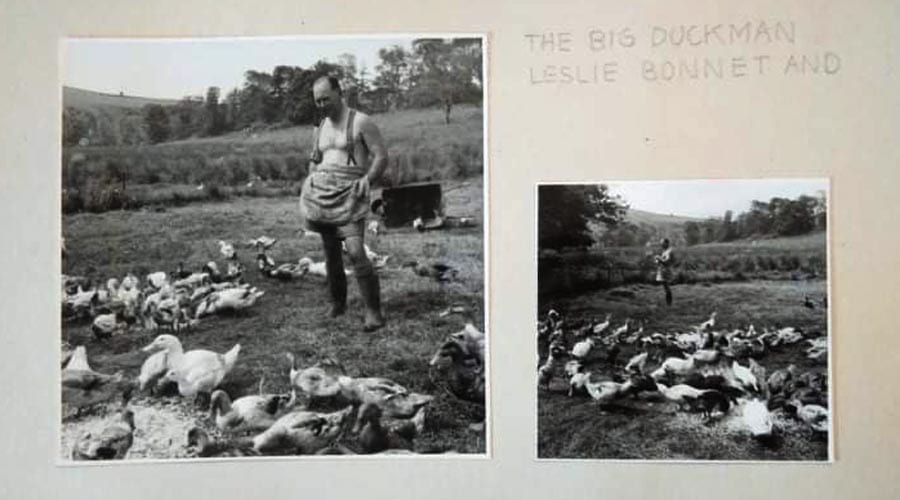
Tyrant Farms' articles are created by real people with real experience. Our articles are free and supported by readers like you, which is why there are ads on our site. Please consider buying (or gifting) our books about raising ducks and raising geese. Also, when you buy through links on our site, we may earn an affiliate commission. Learn more
August 22nd is Leslie Bonnet Day, a day every Welsh Harlequin duck enthusiast should celebrate! In honor of the occasion, here’s some living history about the man and family who originally bred Welsh Harlequin ducks.
Every now and then, something happens to you that gives you feel-good chills and maybe even a tear or three…
As you may know, we’re Welsh Harlequin duck fanatics. Welsh Harlequins are a gorgeous heritage breed duck from Wales, United Kingdom, resulting from “two sports of pre-Khaki Campbell stock in 1949,” according to the breed progenitor, Leslie Bonnet. (Read more about the history of Welsh Harlequin ducks.)
Bonnet was a remarkable human being — and not just because he created Welsh Harlequin ducks. (Seriously, what further accomplishments could one hope to achieve in life to exceed that exalted feat?) Bonnet was also a gifted scholar, writer, magazine editor, banker, and British Royal Air Force (RAF) officer.
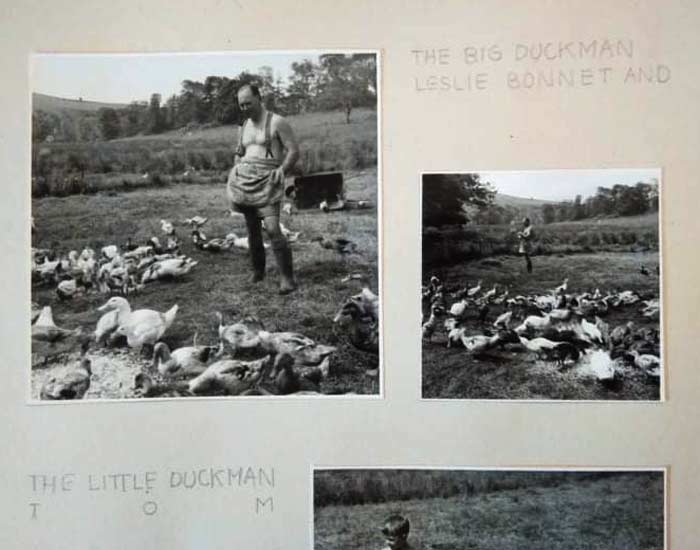
As we’ve recently come to learn, Bonnet was also a wonderful father and grandfather. A true family man.
We know this owing to the fact that Bonnet’s granddaughter, Jacqui, reached out to us to share more about his legacy and the current affairs of the family estate where Welsh Harlequin ducks first came to be. The following are excerpts from our conversations, which we’ll update as new information and photos come to light!
Below Instagram photo: Jacqui Povey, Leslie Bonnet’s granddaughter, enjoying a snuggle with two Welsh Harlequin ducklings.
View this post on Instagram
Why are we sharing this information?
History matters. It helps inform the present while illuminating the future.
Like heirloom seeds, heritage breed animals have rich histories. Sometimes, those stories are so ancient they’ve been lost forever in the fog of time. Sometimes, those stories are more proximate and visible, as is thankfully the case with the history of Welsh Harlequin ducks.
If you raise Welsh Harlequins, we want you to know more about the people, time, and place from whence they came. We also want you to know that you’re part of that living history and a steward of a breed passed down, lovingly, through time.
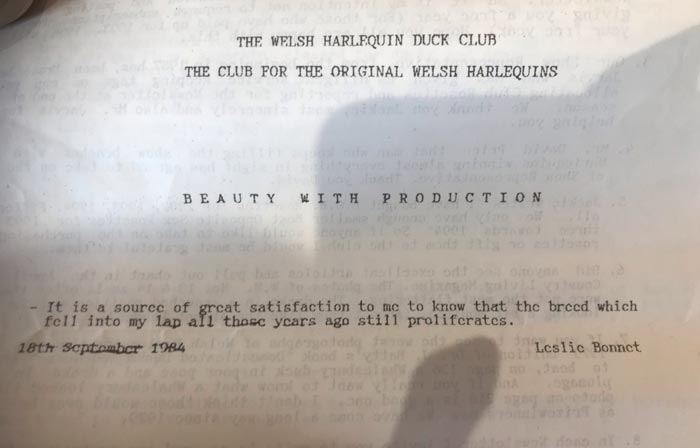
Lastly, by sharing this information, we hope to help preserve it for the public record so it passes forward to future generations of duck enthusiasts, along with the breed itself.
Conversation with Jacqui Povey, granddaughter of Leslie Bonnet (aka the father of Welsh Harlequin ducks)
The following are excerpts from our conversation with Jacqui Povey. Jacqui is the granddaughter of Leslie Bonnet and is in the process of re-establishing the Welsh Harlequin duck breeding program on the same land where Leslie Bonnet started it all in the late 1940s.
Jacqui: When Leslie bought Ymwlch Fawr it was a run down Manor House with land and outbuildings just outside the beautiful seaside town of Criccieth. He moved here with his wife Joan Hutt and their daughters, Leslie (whom he called Kiki), Villette, Alice (my mother, whom he called Bolly), Caroline (whom he called Lulu), and their son Tom. Leslie’s eldest son Bill, from a previous marriage, was a frequent visitor. Leslie and Joan also fostered children back in the day where there was no financial reward for doing so. A kind couple always helping those less fortunate than themselves.
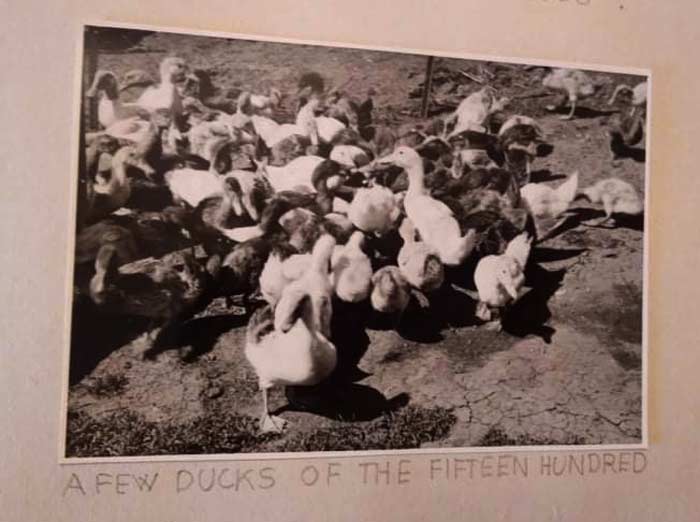
From what I understand, Leslie and Joan fell in love with this part of Wales and subsequently poured every penny they had into buying Ymwlch. This led to some financial struggles at times. The ducks provided eggs and meat for the family but my mother tells me there was a stark contrast from one meal to the next. Often dining on nettle soup [interjection: we also love stinging nettle soup!] and my grandmother became quite the forager. Often the children ran around the land barefoot as do I to this day. Some things never change. I am told I’ve inherited both Joans oddities and Leslie’s imagination.

Leslie was a writer and an amazing story teller. My mother tells me he also used to give dinner speeches. He was an incredibly intelligent, patient, funny and loving man who’s smile was infectious. I was quite young when they passed away but have many strong memories of them. Leslie died 11 months after Joan passed and my mother says he truly died of a broken heart.
Each of Leslie and Joan’s children were given an outbuilding on the estate when they reached adulthood and each child, along with their partners, slowly but surely converted them into their family homes. All but Tom that is, who was given half of the main house instead. So sixteen grandchildren later, Leslie and Joan’s family has expanded and grown. And for a while everyone grew up together.
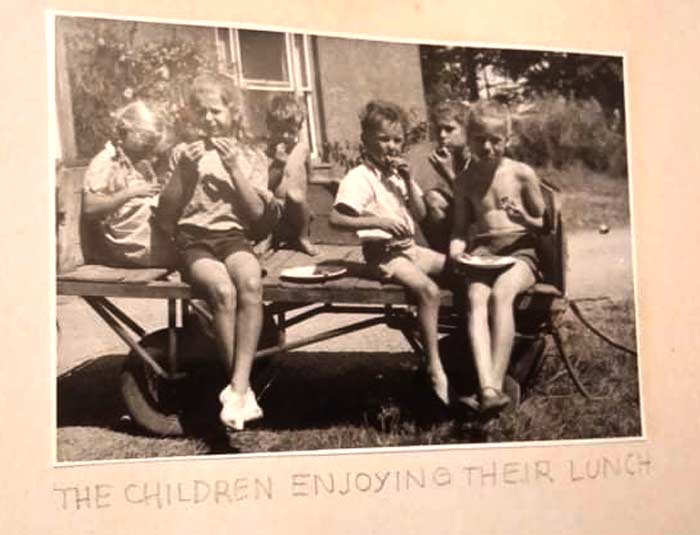
To give an example of Leslie’s tolerance and patience: I remember fondly having boiled duck eggs on the weekends. And every weekend I would finish my egg, turn the shell over and go visit my grandfather. I would claim I had made him breakfast and he would diligently grab a teaspoon. Thanking me for my kindness, he would crack open the shell and cry out “What’s this, you’ve tricked me again. You wicked child”. I never tired of this game and he appeared never to tire of it either. It was years later I learnt that each grandchild would take their role in this game and therefore poor Leslie suffered an infinite amount of disappointing breakfasts!
When I was a child I used to babysit for some people down the lane. I stated from the age of 11 that I would buy the house down the lane and that one day I would buy back Leslie’s favourite piece of land. Many of my family members still live in the previous outbuildings at the estate. I can’t believe I not only bought my dream house but actually bought the land I always wanted.
The Ymwlch meadows were where the ducks were bred. The land consisted of two fields and a woodland with a beautiful stream and small waterfalls. Leslie had forged paths through the woodland and we had a family tradition of ‘the Easter walk’. The men would go hide bags with Easter eggs in the trees and us children would go on the most exciting of hunts. He also planted an amazing amount of daffodils ( his and my favourite flower and a traditional Welsh symbol) in and around the woodland. Even now, there are areas in spring just a sea of yellow.
When I purchased the land, I actually cried. I spent hours there as a child, with my siblings and cousins initially and then just alone. Memories came flooding back and I just knew Leslie would be so happy for me. My husband built me a little cabin in the woods so we could stay there and I could spend time there reading and writing. We decided to dig out a lake like Leslie always intended and in preparation for reintroducing the Welsh Harlequin to their original home. The old duck ponds are still there however, this lake is bigger with an island.
I have not reintroduced the ducks yet and have only recently hatched two ducklings. This was more of a rescue hatch as someone contacted me who had to move her ducks and one was sitting.
She had no time to incubate them herself and seeing as they’d been moved etc none of us were sure if any would make it. But Chubb and Grubb (huge LOTR fan) are now an established part of the family. This year I have started my own little holiday let [what we call vacation rental home in America] in one of my converted barns affectionately called ‘ My Bonnet Hutt’ after both my grandparents. I’m just so proud to be their granddaughter and not only have I named it after them but it will give me time to really get this duck breeding off the ground.
Raising ducks in the old days…
Elsewhere on this website, we’ve written extensively about how to hatch duck eggs, raise ducklings, make a duck coop and run, keep your ducks safe from predators, and more. Nowadays, these processes are made orders of magnitude easier than they used to be thanks to modern conveniences like electricity, large hardware stores, etc. It wasn’t always so!
Jacqui: My mother says that she and the other children were sent crawling into the duck houses to collect the eggs, and that Leslie was quite the inventor and engineer. He fashioned his own way to open the doors for the younger duckling to enter areas of the pens without having to go in. A little pulley system. Archaic but effective. Also she said he made his own cage to catch the crows to stop them feasting on the ducklings.
Also my brother bought for me from a local clearance sale the old incubator my grandad used. A big beautiful wooden one which was powered with paraffin. I’m hoping to get it fixed.
Welsh Harlequin gold phase vs. silver phase
If you’re into Welsh Harlequin ducks, you might know that there are two types, the original Gold Phase (still the standard in the United Kingdom) and the newer Silver Phase (emerging from Dave Holderread’s breeding programs here in the US).
Since people can be surprisingly vicious about such distinctions and what constitutes a “real” Welsh Harlequin duck, here’s our conversation with Jacqui on that topic:
Jacqui: I’ve noticed that in America everyone seems to favour the silver phase Welsh harlequins and yet over here it’s the Gold phase that’s more popular.
Tyrant Farms: As you mentioned, the Silver Phase Harlequins are more common/popular here in the US. That’s likely due to the fact that most of the duck breeding here in the states is done predominantly by two large breeders from which farms, homesteaders, and backyard poultry enthusiasts purchase their ducks (they actually ship day old ducks in the mail). We’ve had both Golds and Silvers over the years, and love them both. Hopefully, this American bastardization isn’t an offense to your family!
Jacqui: We are in no way offended that in America the silver phase is more popular. I was just curious as to why this was the case. To be honest you don’t get many people in Wales who are aware of the silver phase and some of my family members aren’t even aware of the two types. It’s wasn’t actually Leslie who named the two phases, that came a little later.
Take a pilgrimage to Gwynedd, Wales, to celebrate Leslie Bonnet Day?
We have a new entry on our bucket list… At some point in our lives, we’re going to travel to Criccieth, Wales, and rent My Bonnet Hut, Jacqui’s quaint yet gorgeous cabin situated just down the lane from the ancestral land where her grandfather, Leslie Bonnet, risked everything to start life anew. The land where Welsh Harlequin ducks originated, a breed which has added untold joy and humor to our lives.
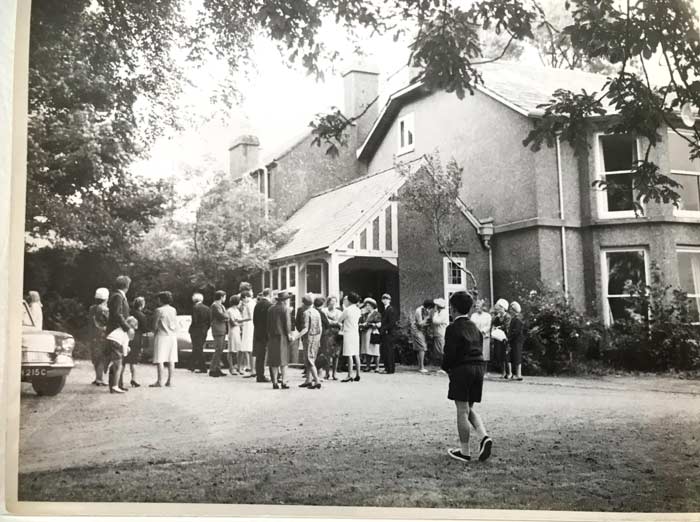
As Jacqui says of the breed, “they are, without doubt, the most wonderful creatures.” Indeed.
To all you other Welsh Harlequin duck lovers out there, remember to set a recurring yearly calendar reminder on August 22nd to celebrate Leslie Bonnet Day! Maybe we’ll see each other and exchange quacks on the Ymwlch meadows.
Special thanks to Jacqui Povey for reaching out and sharing her family’s stories with us — and with you!
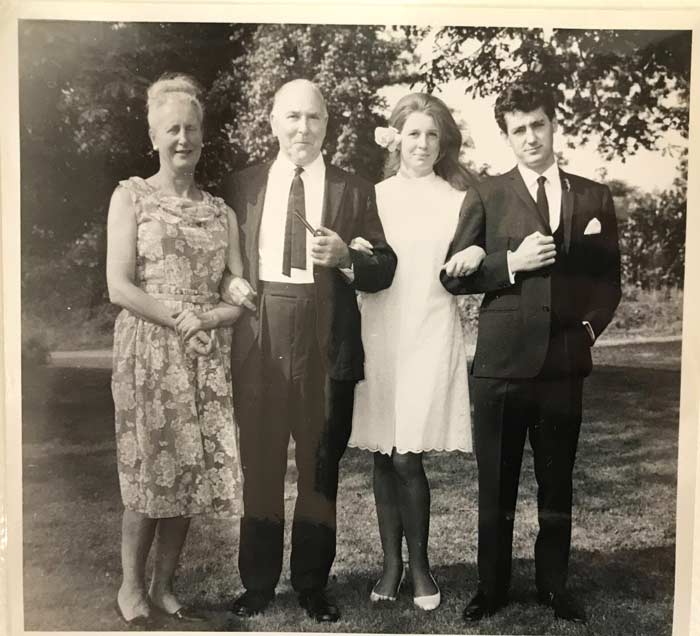
We hope you enjoyed learning more about the history of the Bonnet family and their Welsh Harlequin ducks!



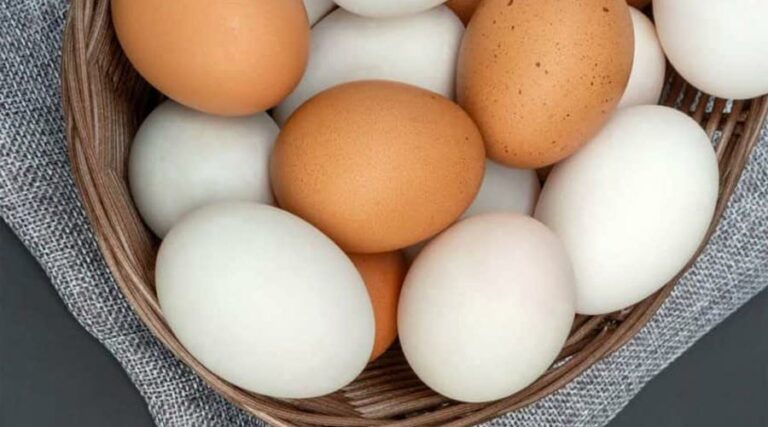
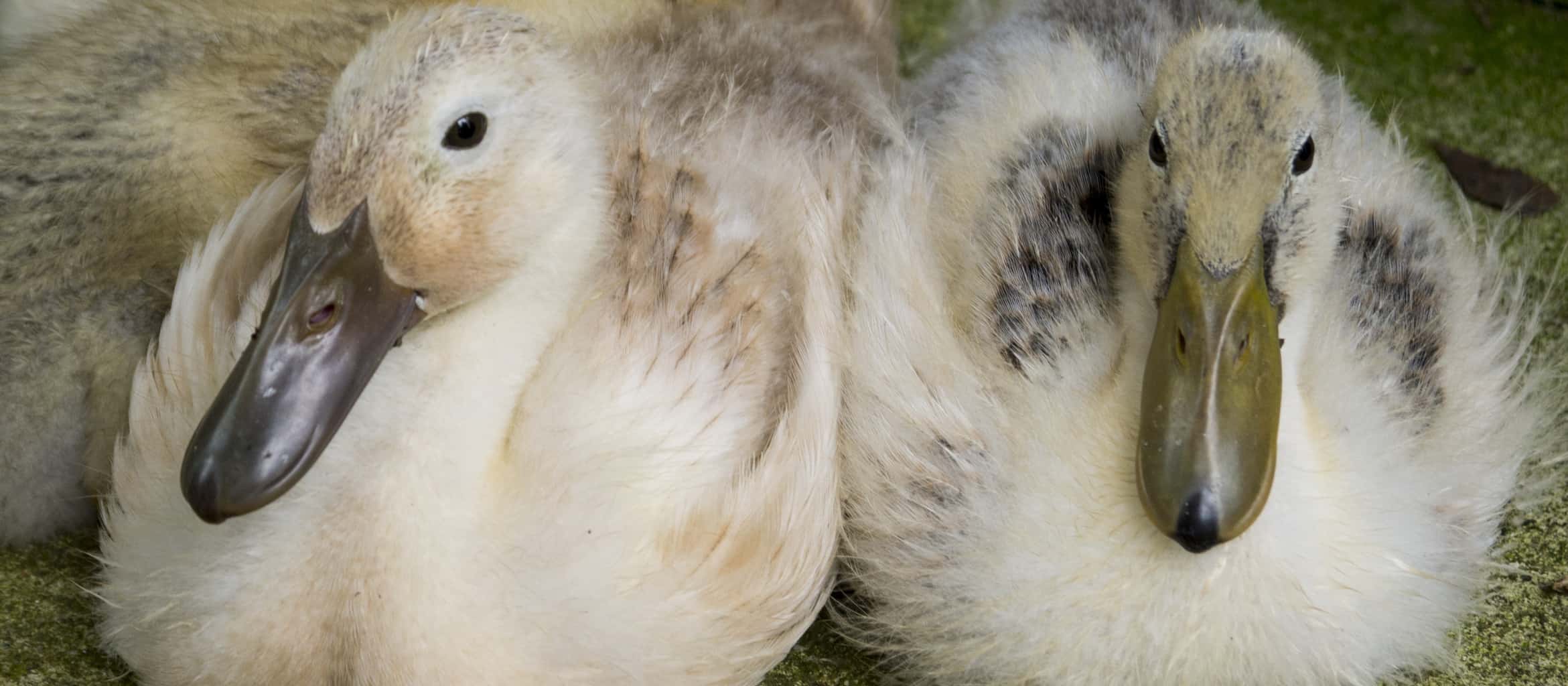
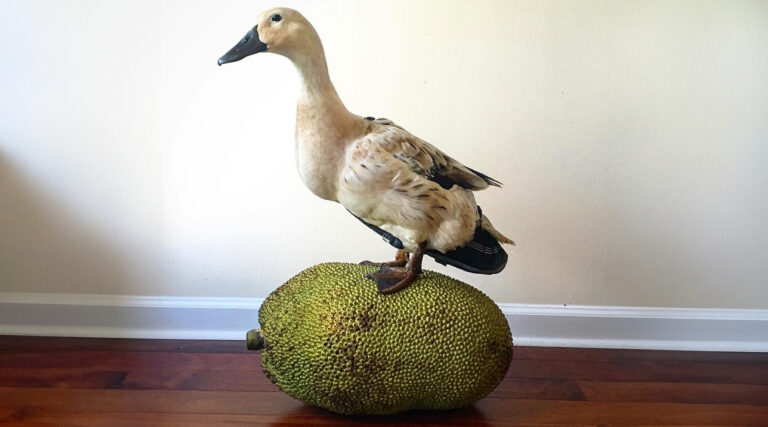
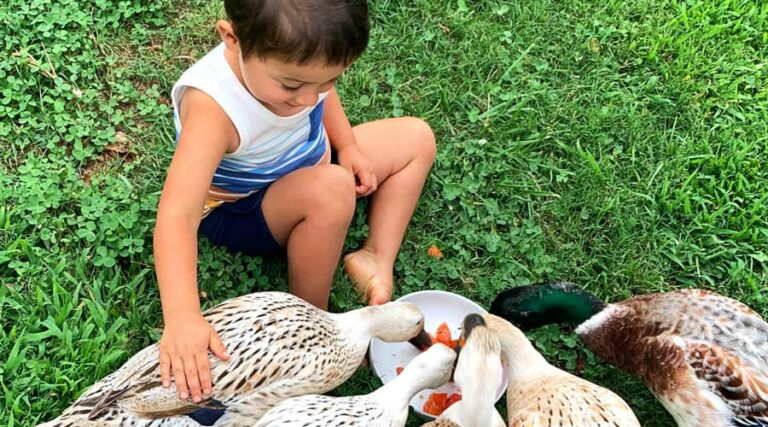
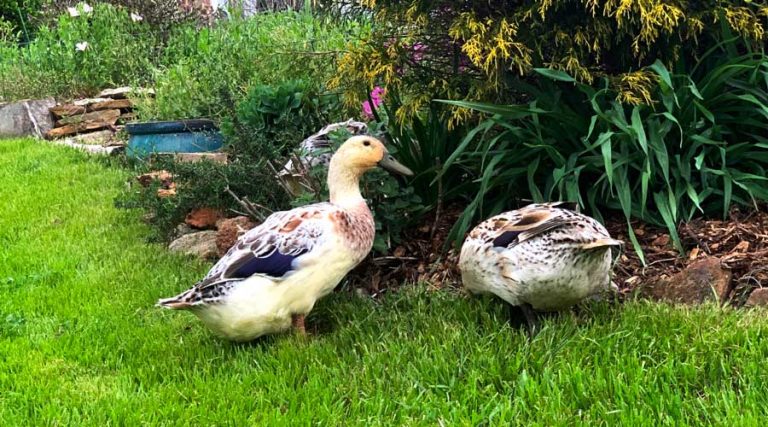
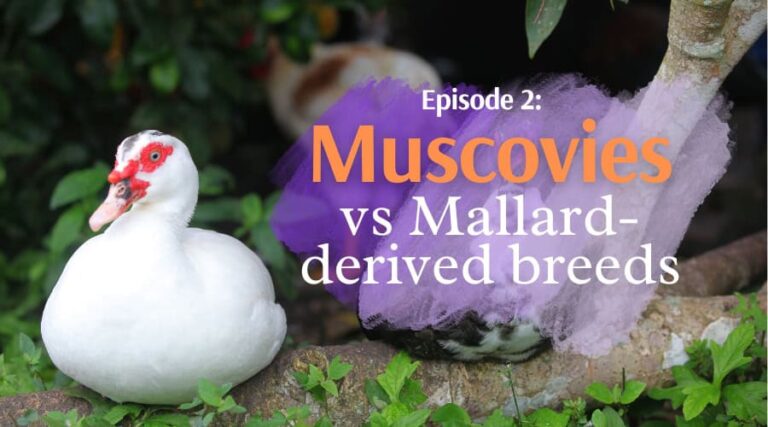
What a charming and fascinating story. How fortunate that you were contacted by Jacque. and able to learn the backstory on your beloved ducks. This new contact and information provides a perfect reason to revisit the beautiful Welsh countryside where some of your ancestors came from and you traveled to as a young child.
Family trip to Welsh Harlequin land?